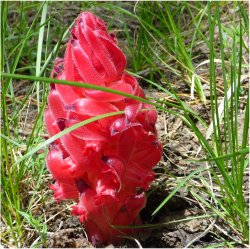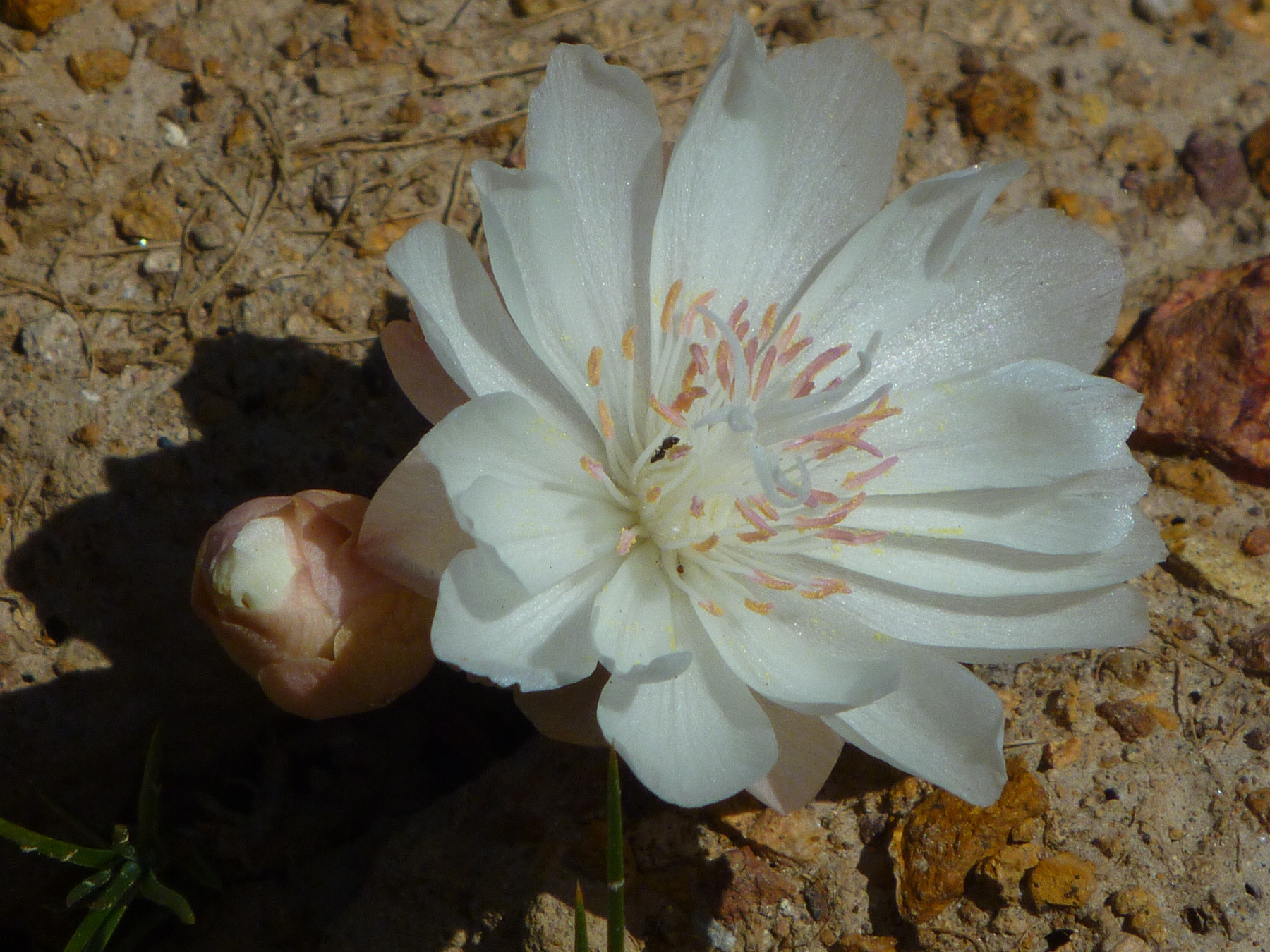White bitterroot flower with pink bud
| Tweet |
 |
Bitterroot east of Reno, Nevada |

|

| Tweet |
 |

| ▶ | Lewisia rediviva—Bitter-root, Sand Rose |
| ▶ | Wildflower Center: Lewisia rediviva |
| ▶ | USDA Plants Database: Lewisia rediviva Pursh, bitter root |